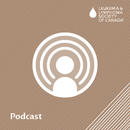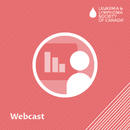Resource Library
Showing 1 to 10 of 211 results
Dr. Florian Kuchenbauer explains the basics of AML diagnosis, treatment, side effects, and research.
Al Collings talks about living with CML and how it has brought new meaning to his life.
Mrs. Linda August talks about her experience with Lymphoma and how she learned the importance of taking an active part in her care and treatments.
Tiffany Woodworth shares her story of receiving a Hodgkin lymphoma diagnosis as a young adult, and the supports that she received during her experience.
Dr. Jacqueline Costello talks about the basics of Diffuse large B-cell lymphoma (DLBCL), diagnosis, treatment, side effects, and research for DLBCL.
Bob Sisler has been in remission from Angioimmunoblastic T-cell lymphoma, a type of Peripheral T-cell lymphoma, since 2015. Bob shares with us his personal experience with diagnosis, treatments, and life after blood cancer. As a Peer Support Volunteer, Bob gives back to the blood cancer community through the LLSC’s First Connection program.
Dr. Pierre Villeneuve talks about diagnosis, treatment, side effects and research for Myelofibrosis.
This June 2025 recorded webcast features Dr. Natasha Kerke, hematologist and Canadian researcher of CAR T-cell therapy, discussing the latest advances in immunotherapy, including CAR-T and bispecific antibodies.
Michael Kornicoch shares his story of being diagnosed with acute myeloid leukemia (AML) through to remission.
Eric Pitters talks about living with chronic lymphocytic leukemia (CLL), the treatments he underwent and how he now gives his time to supporting people who are newly diagnosed with CLL.

